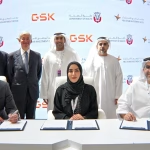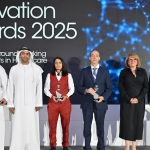On the second day of Abu Dhabi Global Health Week (ADGHW 2025), taking place at the Abu Dhabi National Exhibition Centre (ADNEC), a compelling panel discussion titled ‘The Doctor of the Future’ brought together perspectives from across the healthcare spectrum—regulation, clinical leadership, and hospital operations. Moderated by Dr Panco Georgiev, Senior Partner at McKinsey, the session explored how the evolving healthcare landscape is redefining the physician’s role and what it truly means to be a “doctor of the future.”
Opening the discussion, Professor Quek Swee Chye, Executive Director of the NUHS Institute of Clinical Quality at the National University Health System, set the tone by offering a comprehensive vision of the future medical professional.
“I feel that the doctor of the future has to be very versatile,” Professor Quek stated. “It’s no longer just about having the knowledge but being able to search for the right knowledge in relation to the medical conditions they’re treating.”
He emphasized the need for adaptability in technology, referencing the ongoing wave of digital transformation sweeping across healthcare. From artificial intelligence to advanced digital platforms, physicians must be equipped to harness these tools without losing sight of empathy and human connection.
“Despite rapid advances in technology, our patients still value that human touch,” he said. “We mustn’t forget the emotional intelligence doctors need to possess.”
Bringing in the regulatory perspective, H.E. Dr. Rashed Alsuwaidi, Director General of the Abu Dhabi Public Health Centre (ADPHC), reflected on the competency expectations of physicians and how these are shifting in light of recent global challenges.
“We noticed during COVID, and even before, that our graduates were lacking some of the skills needed to keep pace with the evolving healthcare landscape,” he said. “So, we began upskilling and continue to do so to bridge those gaps.”
Dr. Rashed Alsuwaidi pointed out Abu Dhabi’s pioneering efforts, highlighting how the emirate’s digital infrastructure played a critical role during the pandemic. He noted that by 2025, Abu Dhabi’s health system will integrate large language models (LLMs) into Malafi—its national health information exchange, allowing physicians to query a patient’s 20-year history with a single input and visualize key metrics.
“It will make the life of our physicians much easier. It improves the quality of care and allows more time for doctor–patient communication,” he added.
He also spotlighted the emirate’s progress in training over 10,000 healthcare professionals in artificial intelligence through a partnership with Mohamed bin Zayed University of Artificial Intelligence.
“We are also addressing the challenges of an aging population, mental health, and longevity,” he explained. “We were the first in the world to license live medicine and functional medicine physicians and establish international standards for longevity care.”
From the operator’s standpoint, Sherrie Lim, CEO of Mount Elizabeth Novena Hospital in Singapore, shared her experiences balancing innovation with operational continuity. Leading one of Singapore’s top private hospitals, she highlighted the challenge of implementing new technologies while supporting both seasoned and new doctors.
“One of the biggest investments we’re making is building the infrastructure to support what regulators and academic leaders are working towards,” she said. “We need platforms to aggregate data from genomics, wearables, and more, so doctors can access all relevant information in one place.”
Sherrie Lim noted the complexity of navigating change management, especially with older physicians who might be less inclined to adopt new technologies as rapidly as their younger counterparts.
“It’s a balancing act,” she said. “But ultimately, our priority is what’s best for the patient. We have to keep our ears to the ground and prepare for what’s next, whether it’s bringing in more robotics or exploring platforms to optimise the health of already healthy patients.”
Also Read: ADGHW Innovation Awards recognise global health innovators for transformative impact
As the discussion came to a close, one thing was clear, the doctor of the future isn’t some far-off concept. It’s already taking shape, and it’s happening faster than we think. From technological know-how and data fluency to emotional intelligence and adaptability, tomorrow’s doctors will need to wear many hats. The insights shared during Abu Dhabi Global Health Week 2025 show that healthcare systems around the world aren’t just preparing for change, they’re already in the thick of it, actively reshaping what medicine looks like for the years ahead.



















